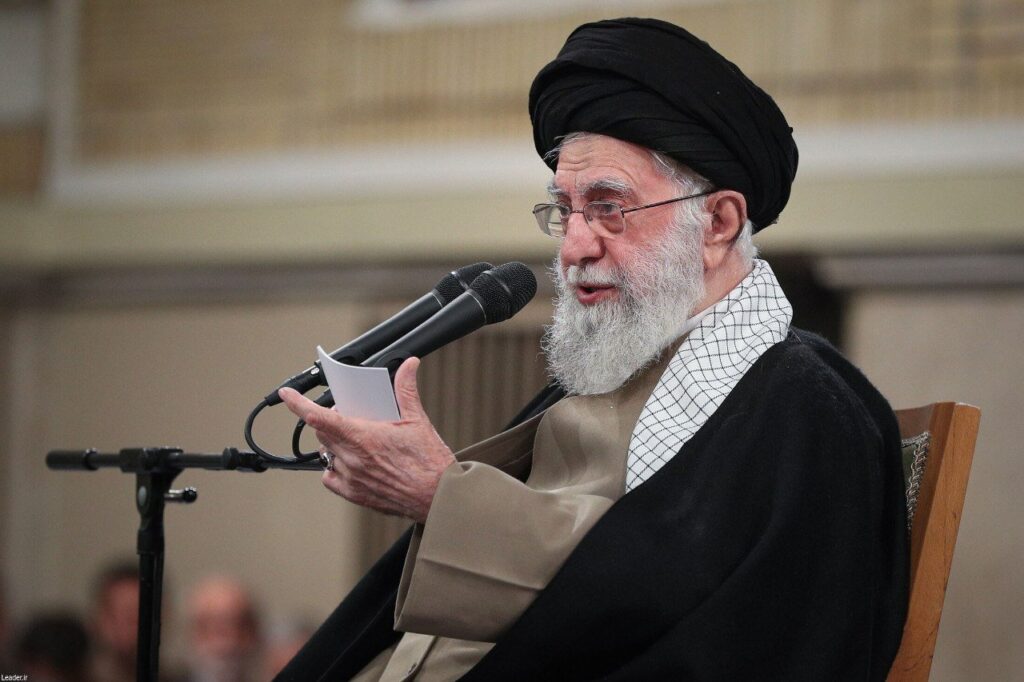On the anniversary of the death of Imam Khomeini, leader of the Islamic Revolution, he brought a strong, principled speech in defense of Iran’s right to enrich uranium. He firmly rejected the US’s demand to halt the enrichment process, saying that such a request contradicts the aspirations of the Iranian people and the enduring belief in the power of independence. “The United States is not in a position to decide whether Iran will engage in enrichment,” he declared firmly.
The leader described uranium enrichment as the basis of Iran’s nuclear industry, emphasizing that even 100 nuclear power plants would be pointless if they had no ability to independently produce nuclear fuel. He warned that the US’s true purpose is not nuclear non-proliferation, but rather a complete dismantling of Iran’s nuclear capabilities, an ambition that Iran will never accept.
These statements have a deeper message. They reaffirm that Iran’s nuclear program is more than a political issue. It is the strategic pillar of national development and independence. As the leader pointed out, nuclear technology is more than just a tool for energy production. It is a “maternal industry” that promotes advances in medicine, agriculture, pharmaceuticals, aerospace, nanotechnology and defense. Preserving this industry is essential to protecting Iran’s scientific and technological future.
With global energy needs increasing and developed countries continuing to expand the nuclear sector, denying access to peaceful nuclear technology is not only unfair, but also a clear violation of international norms. As a signatory to the Non-Proliferation Treaty (NPT), Iran has consistently worked with the International Atomic Energy Agency (IAEA) and has undergone repeated confirmation of the peaceful nature of its nuclear program. However, some Western countries, especially the United States, are not stalking about the emergence of independent, scientifically advanced Irans that resist external control, not nuclear weapons threats.
The leader correctly identified uranium enrichment as a symbol of strategic autonomy. Whether economic, political, or media-driven, Western pressures are designed to be incomplete and dependent on Iran’s nuclear fuel cycle. However, countries that cannot produce their own reactor fuel are at the mercy of foreign suppliers and are forced to buy it under high prices and politically motivated conditions. Such dependence is fundamentally in conflict with the principle of national sovereignty.
One of the most impressive parts of the leader’s speech was his direct challenge to America’s approach to global diplomacy. “Why does Iran interfere with whether or not it will enrich uranium? Who do you decide?” he asked pointedly. This was not a rhetorical question, but a legitimate protest against double standards and forced tactics used in global forces. It is precisely this kind of arrogance, coupled with sanctions and broken promises, that erodes Iran’s trust in Western commitments such as the Joint Comprehensive Plan of Action (JCPOA).
Importantly, Iran is no longer defensive. Decades of scientific investment, young people’s dedication and hard-earned diplomatic experience allow the country to define its own terms in future negotiations now. The nuclear achievements of the Islamic Republic are the result of tireless efforts, international resistance, the sacrifices of its scientists, and the immorality of its people. Abandoning these achievements does not just mean abandoning advanced technology. It would represent a setback in the face of external pressure and betrayal of public pride.
In today’s world where knowledge and innovation define power, Iran’s own nuclear capabilities have heightened its position as a serious and respected actor in an emerging multipolar world. Many countries that now look beyond the unipolar system dominated by the US, view the Iranian experience as a model of scientific resistance and balanced diplomacy.
The leader’s message to the Iranian state was also clear. The path to scientific progress and national independence must be pursued with unity, confidence and determination. Supporting scientists, protecting intellectual resources, strong relationships between academics and industry, and resilience in the face of foreign threats must remain national priorities.
Ultimately, the leader’s statement wasn’t just about defending rights. They were a call to continue their journey. A journey that continues today, beginning with resistance to oppression, through knowledge, dignity and an unwavering commitment to national progress. Iran does not seek or bring permission to assert its rights through reason and resistance. This is a decisive and clear message that Iranian people send to the world.
Article: Saman Sofaluger

